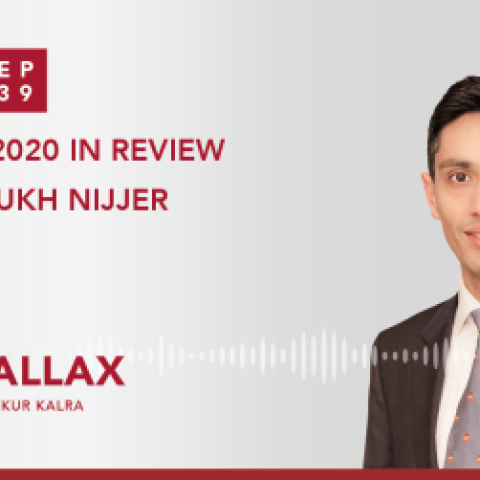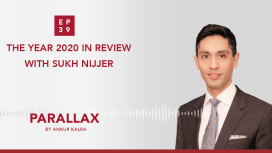
In the first Parallax episode of 2021, Ankur welcomed back Sukh Nijjer from Imperial College London to review the most impactful events and advances in cardiology from 2020.
In the first part of the episode, Ankur and Sukh focus on the mechanism of the coronavirus and its effects on the heart including clotting abnormality and troponin elevation. They discuss their clinical experiences and observations within the UK and US settings in light of the latest data. Sukh offers practical tips on how to approach patient management during this pandemic.
Following this, Ankur and Sukh analyse the controversial STRENGHT study in light of the results from REDUCE-IT. They discuss the different attitudes toward early cryoablation therapy in the context of STOP AF and EARLY-AF studies. Sukh reviews the findings of the RHAPSODY Phase 3 trial and the revolution of SGLT2 inhibitors in the treatment of heart failure.
Which COVID19 patients require risk stratification with a stress test? What are the take-home messages for physicians taking care of patients diagnosed with COVID19? What were the key trials of 2020? What can we learn from the negative results of the STRENGHT study? How have studies like STOP-AF influenced clinical practice?
Questions and comments can be sent to “podcast@radciffe-group.com” and may be answered by Ankur in the next episode. Guest @SukhNijjer, hosted by @AnkurKalraMD. Produced by @RadcliffeCARDIO.
Sponsored by Edwards.



Which COVID19 patients require risk stratification with a stress test? What are the take-home messages for physicians taking care of patients diagnosed with COVID19? What were the key trials of 2020? What can we learn from the negative results of the STRENGHT study? How have studies like STOP-AF influenced clinical practice?


Which COVID19 patients require risk stratification with a stress test? What are the take-home messages for physicians taking care of patients diagnosed with COVID19? What were the key trials of 2020? What can we learn from the negative results of the STRENGHT study? How have studies like STOP-AF influenced clinical practice?





